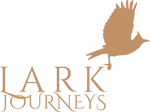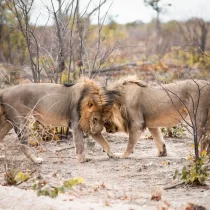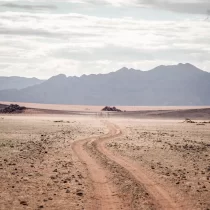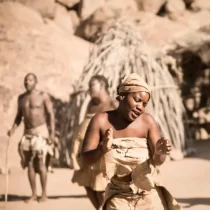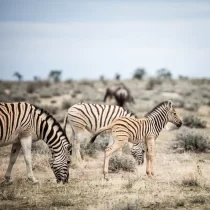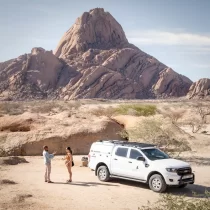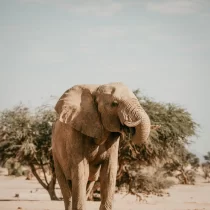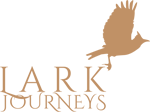What To Pack
Not sure what to pack for your Namibian Safari Adventure, check out our list of recommended items:
Soft Luggage
Namibian roads are notoriously rough and bags tend to bounce around in vehicles. For this reason, we recommend soft bags or backpacks, as there is generally less wear and tear. Namibian lodges and campsites are also still quite rustic, and wheelie suitcases do not fair so well, so best to bring a bag that is easy to carry.
Reusable Water Bottles
We are doing everything we can to reduce our environmental impact and this includes reducing the use of single use plastic bottles. Water in Namibia is generally safe to drink as it is sourced from underground, but if you prefer to drink bottled water then we encourage you to buy 5L bottles to refill your individual drink bottles. The empty 5L bottles can then be reused or recycled.
Power Banks
Whilst many of our vehicles allow for USB charging, and all lodges, and many campsites offer electricity to recharge, you may find that in all the excitement and using your cell phone as a camera the batteries deplete quicker than expected. Small portable power banks can be very handy in these moments to ensure you don’t miss a photographic opportunity.
Torch/Headlamp
Whilst a headlamp is essential on camping tours, a torch, or the torch app on your cell phone, is highly recommended for all kinds of travel in Namibia. This could be handy when returning to your room after dinner, or finding your way to/from the waterholes in Etosha.
Binoculars
Game viewing is only made more interesting with a pair of binoculars, enabling you to get a closer look at some of those creatures that are just out of eyesight.
Adaptors/Plugs
Typically in Namibia we use a combination of South Africa 3 point plugs, and European 2 point plugs. If you cannot find these at home then do not worry, adaptors are readily available in most supermarkets throughout the country.
Personal Entertainment
Namibia is a big country, and this often means long days on the road. You might like to bring some music and create a special road trip playlist or hit shuffle, but with limited radio stations available, something to listen to on the long drives can be very handy. Or passengers might like to bring a book to keep them enthralled during long journeys, just don’t forget to look up and enjoy the forever changing dramatic landscapes passing by.
Reusable Shopping Bags
Single use plastic bags are now banned from all Namibian National Parks, so we encourage you to bring a few reusable bags from home so that you have them for any shopping you might do (grocery or souvenir) whilst here.
Clothing
Winter (May – September):
The early mornings and evenings can be very cold during our winter months so it is recommended that you bring a good thick fleece, scarf, beanie and gloves. The days however can be quite mild, reaching up to 25 degrees Celsius so it is a good idea to dress like an onion, peeling the layers off as the day heats up, and putting them back on as the sun sets.
Summer (October – April):
This is typically our hotter and rainier season. The days on average start to warm up (and the mornings and evenings) from October until we receive rain anytime from November. This means that if you are travelling during October – April then pack a light raincoat to keep dry should we get an afternoon shower. It is also advisable to pack at least 1 pair of long trousers and light fleece as if we do tend to get rain then the temperature can drop quite quickly.
All Year :
At least one pair of closed shoes, comfortable for walking, as well as a pair of flip flops, ideal for use in communal showers (if camping) or by the swimming pool.
A hat, sunglasses and sunscreen – even our winter sun can burn and despite often being overcast, the coast often catches people out with high UV.
Medication
Should you be on any medication, then it is strongly advisable to bring this with you from home as there are no guarantees that you will be able to resupply it here in Namibia. It is also strongly advised to tell someone you are travelling with where this medication is stored, or if travelling alone, then let your guide know in the event of a medical emergency.
Visit Conservation Centre
Another option is to include a visit to a conservation centre, to learn more about the work being done to mitigate the issues between humans and wildlife. Where? All over Namibia
Visit Okapuka Ranch
Visit Okapuka Ranch, 20 km north of Windhoek. Enjoy a game drive on the ranch with the opportunity to see rhinos, giraffes and a number of antelopes.
Where? Windhoek
We hope that you found this guide on what to pack useful and are now ready for your Namibian adventure!

